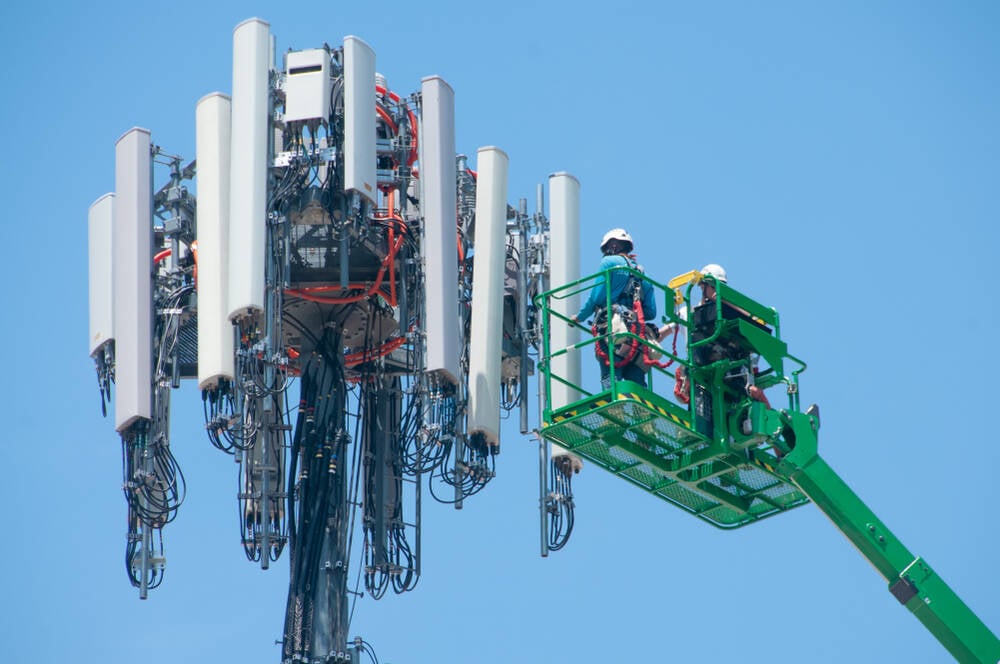Nokia Brainwave Turns Cell Towers Into Cash Cows With Backup Batteries

Nokia is tempting mobile network operators with a tool that it thinks will help them monetize the backup battery storage at their cell base station sites.
The telecoms infrastructure giant says the tool can switch cell base stations from grid power to backup batteries at times of peak demand to lower energy costs. Alternatively, it can provide energy back to the grid to generate revenue for the mobile operator.
Called Virtual Power Plant (VPP) Controller, the software creates "a new purpose and function" for the base station backup battery storage as this will mostly be sitting idle because power cuts are rare, Nokia claims.
The sales pitch is that by switching from grid power to backup battery operation, mobile operators can lower their energy costs in the electricity spot market, which means that if the price gets above a certain level, the cell base station switches to running off battery power instead.
Nokia also notes that in countries which operate a power reserve market, third parties can bid to provide power to the grid. Mobile operators can use the backup battery storage from base stations to provide energy to the market instead of drawing grid energy.
The advantage of this (for the operator) is that it turns their battery backup systems into an investment with a financial return, Nokia claims, while becoming part of the reserve power resources for the power grid help to avoid power cuts and can reduce the overall CO2 footprint.
Nokia has completed several trials with the system and aims to make the software available later this year. We asked the company if it had any prospective takers, but it has yet to name names.
"Nokia's Virtual Power Plant is an incredible innovation that will help our customers monetize the energy stored in their backup batteries while also reducing carbon emissions," Nokia President of Mobile Networks Tommi Uitto said in a statement.
Reg readers are no doubt wondering if this is such a good idea. After all, the whole point of a backup battery storage system is to be there in case of a power failure, and the last thing you want is for the phone network to go offline in an emergency.
- Biden admin keeps O-RAN dream alive with $42M funding for R&D facility
- Telco giants show it's tough selling 5G kit right now
- Nokia walks the walk about its RAN to play on Uncle Sam's China fears
- Is it time for 6G already? Traffic analysis says yep
Nokia claims that its software ensures it is safe to use battery power in the power reserve market as it is able to estimate how much extra backup battery capacity is available. This relies on using machine learning algorithms to create "smart" offerings to the grid based on the actual and the predicted power consumption and the extra backup power capacity.
"Nokia are copying an idea from Finnish telco Elisa," according to James Crawshaw, practice leader at Omdia. "The problem is that not all cell sites actually have batteries and if they do they are usually lead-acid not Li-ion so they are not suitable for this use," Crawshaw told The Register. "Upgrading to Li-ion might pay for itself over 3-5 years thanks to the revenue from VPP, but it is still a rather small revenue opportunity compared to the existing revenue of a telco," he added.
Likewise, Microsoft introduced a similar system at its Dublin datacenter in Ireland in 2022, developed with power management outfit Eaton. That proved successful enough that Microsoft announced last year it wants to expand the scheme to other datacenters operated by the company.
However, Moises Levy, principal analyst for DataCenter Physical Infrastructure at Omdia, warned at the time that fans of this setup should not lose sight of the fact that the energy storage system (ESS) is there to provide backup for the vital IT kit.
"It is important to highlight reliability, and the main function of ESS is to protect the mission critical equipment, with the required runtime in case of a power failure," Levy said. ®
From Chip War To Cloud War: The Next Frontier In Global Tech Competition
The global chip war, characterized by intense competition among nations and corporations for supremacy in semiconductor ... Read more
The High Stakes Of Tech Regulation: Security Risks And Market Dynamics
The influence of tech giants in the global economy continues to grow, raising crucial questions about how to balance sec... Read more
The Tyranny Of Instagram Interiors: Why It's Time To Break Free From Algorithm-Driven Aesthetics
Instagram has become a dominant force in shaping interior design trends, offering a seemingly endless stream of inspirat... Read more
The Data Crunch In AI: Strategies For Sustainability
Exploring solutions to the imminent exhaustion of internet data for AI training.As the artificial intelligence (AI) indu... Read more
Google Abandons Four-Year Effort To Remove Cookies From Chrome Browser
After four years of dedicated effort, Google has decided to abandon its plan to remove third-party cookies from its Chro... Read more
LinkedIn Embraces AI And Gamification To Drive User Engagement And Revenue
In an effort to tackle slowing revenue growth and enhance user engagement, LinkedIn is turning to artificial intelligenc... Read more

